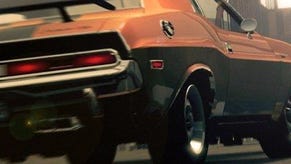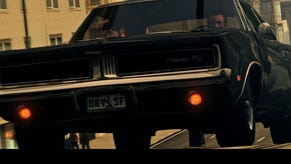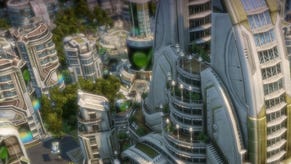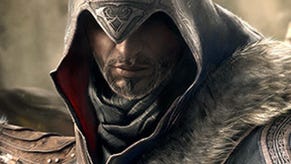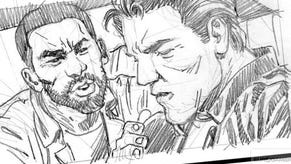Driver: San Francisco's MOT
Martin Edmonson on reviews, decisions and the future.
Back in PlayStation 1 days, Driver was the height of gaming, a pioneer in the open world mission-based driving genre. And Newcastle-based developer Reflections was a power-house. But Driver 2 stalled and Driver 3 crashed. Driver: Parallel Lines was better.
Atari flogged the IP and developer to Ubisoft, and PSP game Driver '76 emerged. Then, this week, along came Driver: San Francisco - a towering return to form and the best Driver game yet.
The Driver: San Francisco development team peaked at 220 staff. The project took four years. Then five, following a year-long delay. A bespoke engine was created from scratch. The game's promise? Driving in a world created by the comatose brain of hero Tanner following a car accident. And a Shift mechanic that allows Tanner's spirit to leap between hosts. In other words, Driver: San Francisco was one hell of risk.
Martin Edmonson, founder of Reflections (now Ubisoft Reflections), must deliver one hell of a sales pitch. After all, it was this game he returned to his studio to make, after having walked away in 2004 following the rushed release of Driver 3. But Driver: San Francisco wasn't flawless. And so Eurogamer sat down with Edmonson for a post-mortem, not only of Driver: San Francisco, but of the series as a whole.
Driver was a massive franchise back in the late '90s with Driver 1 and Driver 2, and then suffered its various issues in the last two iterations. This was a big chance to come back and do something that was different and meaningful and quality. From that point of view it has been really important for the studio. I wasn't there the whole time towards the end, but you can imagine it's not great to be working on a project where your publisher has no money and they want the game out within nine months.
A number of things. We had come up with something that was totally original. The first Driver game was the first open city-ish driving game. And then Driver 2 was the first one to feature getting out of the car and running around. Some people think Grand Theft Auto was the first to do that, but it was actually Driver 2.
We had this rolling ball of innovation, and then Driver 3, we were guilty of falling into a rut of continuing in that vein when GTA had already gone very strongly in that direction: out of the car and with guns and so on. The basic problem with it was that we had not properly finished the out of car sections.
Despite the media-savaging it got, not everybody thought it was poor. That reflected badly on the other bits in car, and actually we were really happy with the car sections of the game - they looked beautiful, the lighting was nice, the cut-scenes were great, the music was great, the cars, the crashes, the physics and so on. But the out of car stuff was just not finished and had been bettered by other games.
Then the publisher situation and release dates: you get to the end of financial [year] and you have absolutely no choice but to put a game out, whether it's finished or not, and that's a difficult situation to be in as well. That's not to say it was entirely the publisher's fault, because we were also running behind on certain aspects of the game.
That would also be a bit unfair. My contract had also run out. It wasn't a case that I got so upset with them that I decided to leave. But had I been extremely happy then, you know, we would have presumably carried on.
There are several aspects. Atari had got itself into a financial situation where it needed to or chose to sell the brand and Reflections. It had been sold to Ubisoft, which was very committed to the idea of bringing back the game in a big way. They weren't going to just take the name and bang something out in a year and take advantage of what we had. [Ubisoft] wanted to form a big team, long development schedule, technologically be on the cutting edge. That, to me, was very exciting, the idea of really brining it back, and that is part of what drove me to come back in.
From a personal point of view you have a studio that I set up, co-founded, and my brother had been promoted to the managing director and I knew lots of people in the team anyway. It's my hometown where I was raised. All of these things collided.
What we are happy about is that we're, so far, very consistently getting bang, eight; bang, nine; bang, eight; bang eight. Now this is not something we're used to! What we're used to is polarised, love it or hate it. And so far the reviews are coming in pretty positively, so we're obviously happy about that.
What I'm pleased about is that the reviews are recognising what's different and interesting and innovative about the game. Remember this comes from a position of having a feature [Shift] which is very difficult to sell on paper and describe, unless you play the game. And when you play the game - I'm not talking about the demo - it's nice to see how many more people get it and enjoy it.


